Our Services
Corn and Callus Removal
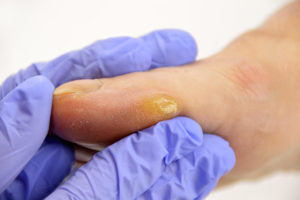
This is a condition caused by a high-pressure area of a build-up of dead skin that has become discoloured, hardened and sometimes painful and uncomfortable to walk on. It may appear in different sizes and location around the foot. Treatment usually consists of the safe removal of the lesion by a qualified podiatrist and advice and options to improve the condition are offered. Medical conditions such as diabetes and rheumatoid arthritis can make this condition worse and if left untreated can lead to more serious foot complications.
Corns and callouses can affect people of all ages and should not be suffered needlessly. Simply book an appointment today and give your feet the care and attention it deserves.
Ingrown Toenails
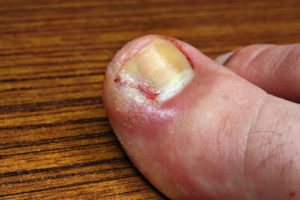
This is a common painful nail condition known as onychocryptosis. It is essential that it is treated as soon as possible as failure to do so could lead to ingrown toenail infections. Signs and symptoms of ingrown toenails include tightness and redness around the toenail with swelling and pain. If neglected there may be a build up of nail debris and skin (hypergranulation) and possible discharge from the site. Part of the nail may also be loose.
Causes of ingrown toenails could be due to trauma, nail disease, curvature of the nail (involuted) or simply as a result of poor nail cutting techniques. It is commonly seen in the big toenail but can also affect the smaller toes too. Treatment usually consists of removal of the offending spike and advice and instructions are given to the care and maintenance and prevention of the condition. If an infection is present our fully qualified podiatrist will also advise if there is a need for antibiotics.
Delaying the treatment of ingrown toenails could make the condition worse and prolong needless suffering and ultimately lead to the risk of an infection. Book an appointment today and let us help you!
Bunions and Hallux Valgus
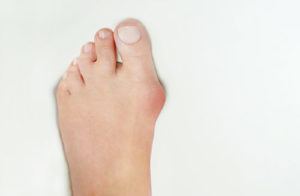
Bunions are bony deformity of the joint of the base of the big toe. It is normally caused by sideward movement of the big toe exerting pressure on the adjacent toes. The joint of the big toe may stick out and become painful, red and inflamed. Wearing unsuitable footwear may make the bunion worse and irritate the skin at the joint. There is also a small chance that bunions may be inherited with structural defect seen in the early years. Arthritis with this condition is not uncommon.
Signs and symptoms of this condition includes:
- Swollen bony bump at the base of the big toe
- Red and may be painful
- Hard callous formation at the site
- Changing shape to the foot
- Less movement in the big toe
- Can be associated with other medical conditions such as Rheumatoid arthritis and Gout.
Treatment depends on the severity of the condition. Initiallly a non surgical approach is taken which can reduce symptoms but does not improve the appearance of the foot. Surgery should only be considered if symptoms do not respond to non surgical management. Our expert podiatrists will provide you with the appropriate footcare and help guide you in your footwear choices.
Orthotics and Insoles
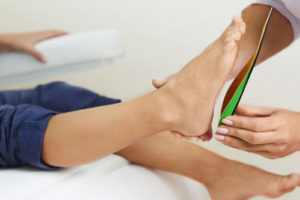
These are specialist prescription or custom made inserts placed in the footwear to realign or accommodate your foot condition. An initial biomechanical assessment is conducted by our experience podiatrist. This will identify whether there is a need for orthotics according to your foot condition. All our orthotics are taken from a cast of your foot and manufactured in a specialised recognised laboratory.
Heel/ Arch Pain
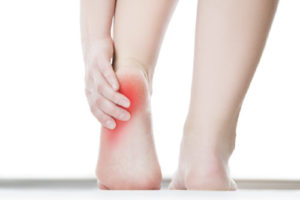
Our feet are made up of 26 bones, 33 joints, 107 ligaments and 19 muscles. The average person takes 8 to 10,000 steps a day. In our lifetime we place a lot of pressure on our feet. Foot and heel pain are common complaints described as a sharp pain that is often worse in the morning radiating from the heel and along the arch area. The excessive strain along the strong fascia tissue that runs under the arch of the foot is also known as plantar fasciitis. Heel pain and plantar fasciitis may be caused by injury, overuse / strain to the site including excessive weight, occupational trauma and poor foot function and anatomy. All of which may be exacerbated by poorly fitted footwear.
Painful feet will require an assessment from our podiatrist to assess the way your foot functions and to provide you with treatment options and advice to help your condition. A gait analysis will look at the way you walk and can be important in identifying problems relating to your knees, hips and back. A biomechanical assessment is carried out by our expert podiatrists who will treat, advise and provide you with the best options.
Diabetes Screening and Care
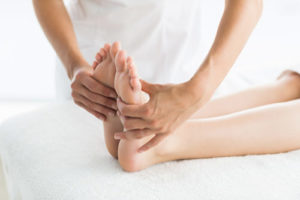
Diabetes foot problems can lead to serious complications if left untreated or neglected. Diabetes can affect the nerves of your foot (neuropathy) or the circulation that can contribute to poor healing of wounds. Foot deformities can easily occur in diabetics and this could lead to abnormal high pressure areas in the foot resulting in tissue damage and serious foot complications. It is important that all diabetics get their foot treated and screened by a qualified podiatrist at regular intervals. The Foot Health Clinic have expert diabetes foot specialist that can provide you with the quality treatment and advice required to prevent further foot complications and keep your foot safe. They have worked in the hospital Diabetes Day Centres in Dublin and the U.K. and can provide you with the best possible treatment and diabetes foot care.
Fungal Nail and Skin Infection
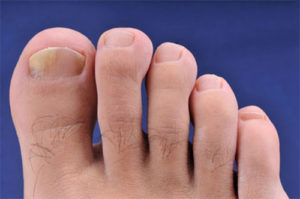
Fungal infection are contagious and can affect any age group. High-risk groups include diabetics, those with poor immunity and people who suffer from excessive perspiration (hyperidrosis). Fungal infection is difficult to treat as there are external factors that can interfere with the treatment such as, lifestyle choices and occupation. Treatment is normally considered unsuccessful particularly for these reasons. At the Foot Health clinic we can diagnose and give you the best advice and treatment options to treat and manage this condition.
Foot Care and Footwear Education
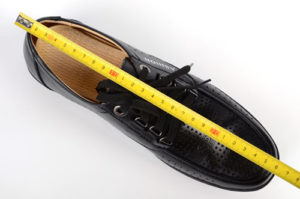
Most foot problems originate from incorrectly fitted footwear or poor foot maintenance. At the Foot Health Clinic we can provide you with expert advice on how to keep your foot in good condition. We can advise you on how to care for your feet to prevent foot problems . We have a footwear measuring service and can give you advice on footwear to suit your foot type. We can help to identify any footwear issues that may potentially be damaging to your feet.
Verrucae Treatment
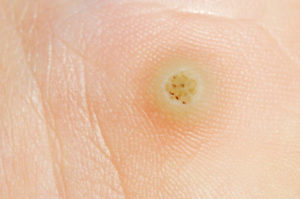
This highly contagious foot condition should be treated as soon as possible and does not always present with pain. It can affect any age group but most commonly are seen in children or those that visit public communal areas such as, swimming pools or gyms. It can be seen as a single or multiple mass of verrucae with no site limitation.
Our experienced podiatrist can diagnose and treat verrucae and provide you with advice on foot care and your treatment options.
Wounds, Ulcerations and Blisters
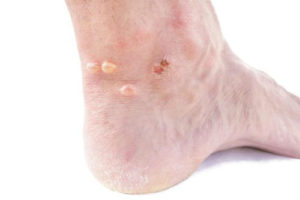
At our clinic we provide a wound management service delivering specialised treatment to promote wound healing. We give expert advice on foot care and footwear management and can also advise on the appropriate orthosis to offload pressure from high pressured sites on the foot. Our podiatrists have vast experience in this area and are able to debride wounds where needed. We deal with all high risk patients including diabetics and those with rheumatoid arthritis.
Covered By Health Insurers:




